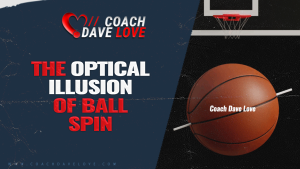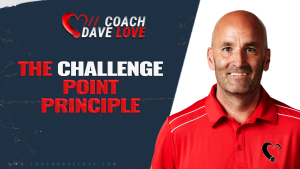Coaching effectiveness is not solely based on one’s playing history; it fundamentally relies on a sound understanding of skill acquisition principles more than the coaches ability to execute the task themselves. These principles are often overlooked in traditional coaching circles, which can lead both novice and veteran coaches to inadvertently limit their players’ potential. This is especially true for former players new to coaching, who might not be familiar with the latest research in teaching and learning. In this context, a player development coach armed with research-backed methodologies can provide substantial value to a coaching staff, perhaps even more than a coach relying primarily on personal playing experience.
In this blog I aim to direct coaches that might not be familiar with concepts in the science of skill acquisition to some of the foundational ideas, to help them improve their coaching.
REPETITION WITHOUT REPETITION
One foundational concept in skill acquisition is “repetition without repetition,” a term coined by the famous psychologist Nikolai Bernstein. This concept challenges the traditional practice of repetitive, unchanging drills, advocating instead for practice that varies the tasks and conditions. This variability helps players adapt to a range of situations, enhancing their ability to perform under different pressures and environments. Traditional coaching might emphasize “muscle memory” through repetitive drills, but this approach can fail to prepare players for the unpredictable nature of actual game situations.
BLOCK, VARIABLE, AND RANDOM PRACTICE
Related to the idea of repetition without repetition are the practices of block, variable, and random training. Block practice involves repeatedly practicing the same skill over and over in an unchanging environment, which can be useful for beginners. However, as players skills advance, variable practice—which introduces slight changes to the practice drills—becomes more beneficial. Finally, random practice, where multiple skills are mixed in a single session, has been shown to significantly improve retention and transfer of skills to game situations. Traditional coaching often relies heavily on block practice, which can limit the development of a player’s ability to adapt and make decisions under game conditions, leading to their new skills crumbling in game situations.
CONSTRAINT-LED APPROACH
The Constraint-Led Approach (CLA) is another pivotal concept, focusing on manipulating constraints to shape player behaviors in learning. This approach can involve modifying task rules, adjusting the environment, or using specific equipment to encourage players to discover effective movement solutions. CLA shifts the focus from prescribing techniques to creating learning environments that promote exploration and problem-solving, contrasting with traditional coaching methods that often dictate specific technical instructions.
INTERNAL AND EXTERNAL CUES
The distinction between internal and external cues is crucial in coaching communication. Internal cues focus on the body’s movements (e.g., “extend your arm fully”), while external cues relate to effects in the environment (e.g., “snap the wrist to spin the ball”). Research suggests that external cues are more effective in enhancing performance, as they promote a focus on the outcome rather than the process. Traditional coaching, often rich in internal cues, may not leverage the full potential of external cueing.
THE CHALLENGE POINT PRINCIPLE
The Challenge Point Principle is a concept in skill acquisition that suggests the optimal learning occurs when the difficulty of practice is adjusted to create an ideal balance between success and challenge. If a task is too easy, the player might perform well, but their skill development is limited because there isn’t enough demand for improvement. On the other hand, if the task is too difficult, players may become frustrated and fail to learn effectively. The principle emphasizes finding that “sweet spot” where athletes are pushed just beyond their current skill level, maintaining engagement while allowing for meaningful growth. For coaches, this means constantly adapting practice conditions—such as adjusting distance, speed, or defensive pressure—to meet the player’s evolving abilities and ensure consistent development.
PERIODIZATION
Periodization is the systematic planning of athletic and skill development training. It aims to bring about structure to practice planning towards peak performance. This method organizes training into cycles that vary in purpose and function, allowing athletes to develop various physical capabilities optimally depending on when their next game might be.. Without periodization, coaches may consistently practice in one way, unaware of other necessary steps in skill acquisition.
PERCEPTION/ACTION COUPLING
Finally, the concept of perception/action coupling is essential for understanding how athletes interact with their environments. It refers to the relationship between sensory inputs and motor responses, emphasizing the importance of training athletes to make rapid and accurate decisions based on what they see and feel. Traditional practices may overlook this, focusing more on technical execution of habits in an isolated environment than on developing perceptual skills and linking new motor patterns to game-like feedback.
CONCLUSION
For coaches at all levels, integrating these, and other, skill acquisition principles into their methodologies is not just beneficial—it’s transformative. By embracing research-backed techniques, coaches can significantly enhance player development, transcending the limits of traditional approaches. As basketball continues to evolve, so too must our coaching strategies, ensuring they are deeply rooted in a thorough understanding of how players best learn and adapt. This approach is about promoting better performance and fostering a generation of players and coaches who are thoughtful, analytical, and adaptable.



